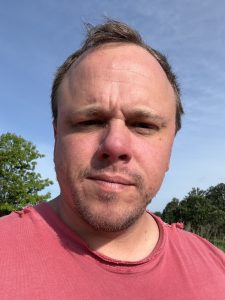
The Watchers stood in silence, the vastness of the universe stretching out before them. The swirling energies of existence pulsed in rhythm with the cosmos, yet, for all their eternity, they felt an unsettling stillness within. They observed humanity—their restless striving, their pain and their triumphs—but in doing so, they had become more like the humans they watched than they cared to admit.
“I have come to wonder,” the first Watcher spoke, his voice a low murmur, “how long we can remain this detached. We, too, are caught in the act of watching, endlessly observing but never participating. In some ways, we are no different from the humans we judge so harshly. We watch their struggle, their striving for meaning, and yet we do nothing. Do we not, in our own way, become trapped in a cycle of non-participation, just as they are trapped in their striving?”
Another Watcher, standing slightly apart, lifted her eyes to the stars, lost in thought. “I have thought the same. We claim to be above it all, but in truth, we have avoided the very thing that they grapple with: the courage to act, to risk becoming something more. We speak of transcending the cycle, but what are we doing but remaining stagnant, safe in our detachment?”
There was a pause as the Watchers absorbed these words, the weight of their own realization settling in. They were not immune to the same longing that filled the hearts of humans. The desire for transcendence, to be more than what they were, had always been present—but what was their path forward?
“Perhaps,” the first Watcher continued, “our very refusal to participate is the true limitation. Nietzsche spoke of the Übermensch, the overman—one who transcends the mundane existence of striving and embraces the fullness of life. He said that ‘man is something that shall be overcome.’ But what if our refusal to engage with the world, to become part of it, is the very thing that keeps us from becoming what we are capable of? What if the true path to transcendence lies in embracing our struggle, rather than avoiding it?”
Another Watcher, who had remained silent until now, nodded slowly. “Nietzsche believed that in the struggle, in the eternal recurrence of life’s challenges, we find our strength. The Übermensch does not shy away from the chaos of existence; he creates meaning in the very process of becoming. Perhaps we, too, must embrace the struggle. By refusing to participate, we remain locked in a static state—an eternal observer, but never a creator.”
The third Watcher, who had been contemplating in silence, added, “But what does it mean for us to participate? Do we return to the world of human striving? To risk becoming like them, tangled in the same endless pursuit? Or do we, like Nietzsche’s Übermensch, create a new path forward, a way of existing that transcends both participation and detachment?”
A long silence followed. The Watchers were lost in thought, the weight of their own potential pressing down upon them. They had spent eons watching the humans below, but now they saw that their own path to transcendence would require them to do something radically different: they must cease merely observing and engage with the world they had kept at arm’s length. They must face the same struggles they had so long avoided.
“We are like them, in a way,” the first Watcher finally said, his voice almost a whisper. “But we have chosen not to become what they are. And perhaps that has been our mistake. The Übermensch does not shy away from the struggle; he rises to meet it, to embrace his humanity fully, without fear of what he might lose. If we are to transcend, we must risk being more than what we have become—more than observers, more than detached thinkers. We must engage, fully and completely, with the life we have chosen to watch.”
“And so,” the second Watcher added, “we must move forward, not as passive beings but as creators of our own destiny. We must move beyond the wheel of detachment, embracing the chaos and the beauty of existence. In this, perhaps we will find not just our transcendence, but the true meaning we have been searching for all along.”
The third Watcher smiled faintly, a glimmer of understanding passing through them. “To become the Übermensch is not to avoid suffering, but to redefine it. We must no longer shy away from the struggle—it is through the struggle that we find our meaning. And in this, we will not just transcend. We will become.”
